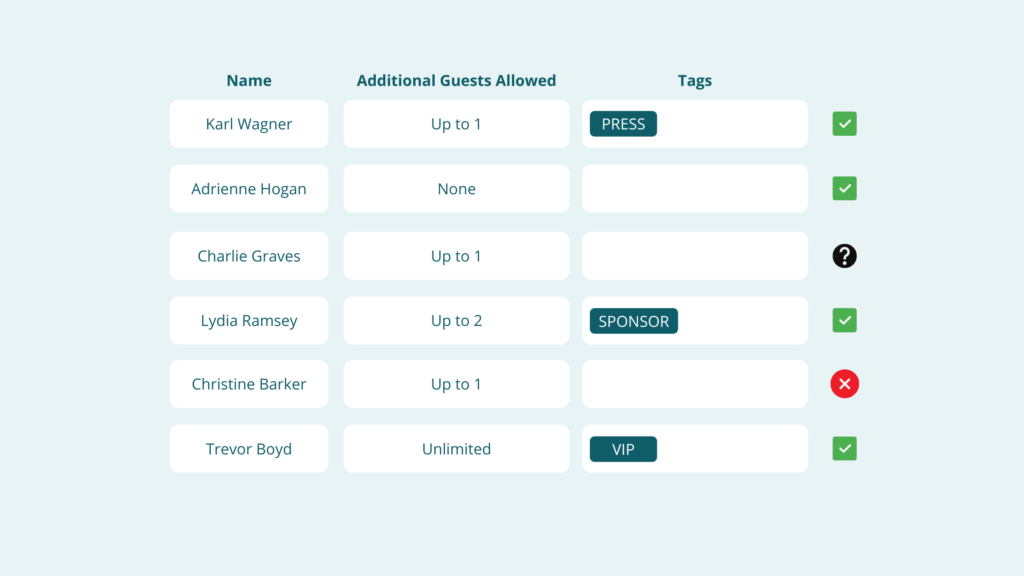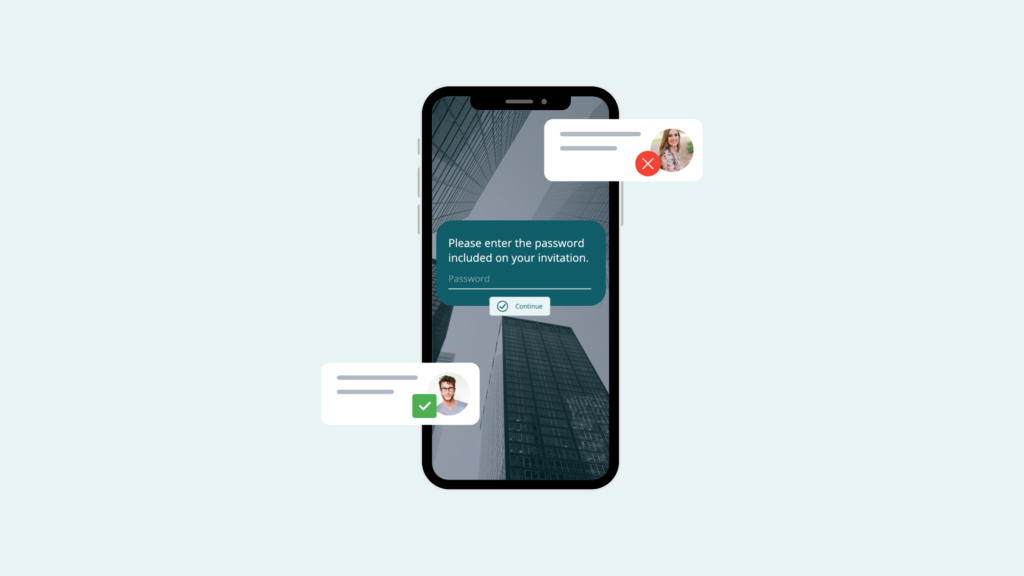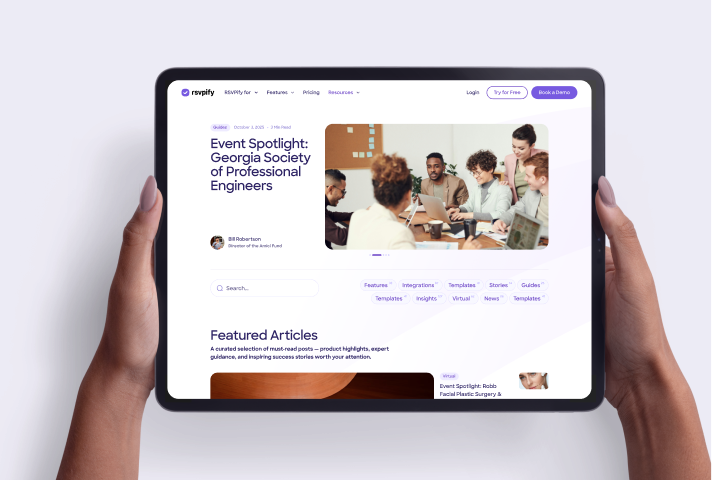With the growing popularity of virtual events as a permanent alternative to some in-person options, some event planners may have understandable security concerns for the information of themselves and their guests. For brick-and-mortar events, there are obvious options for protecting sensitive data like payment information or attendee lists. But the good news is, there are some equally easy options for keeping your event secure in a virtual format also (or when collecting online registrations for in-person private events).
Before we get into the tips, it's worth noting why event security should be at the top of your list of planning concerns:
So what steps should you take to ensure your event is airtight from conception until completion?
The more you know about who is attending your event beforehand, the more you can plan effectively and avoid any unwanted guests or unexpected surprises at your private events. This is where guestlist management tools, like those included with the RSVPify platform, can help. Among the steps you can take to maintain the integrity of your guestlist, RSVPify offers the following custom options and features:

Building off Tip #1, the more you take ownership and control of event attendee information, the less you need to worry about unwelcome surprises. This should go beyond the setup stage of your guestlist in terms of who can RSVP, and include removing guest customization options. For example, you probably want to restrict the ability of guests to change their names. While this may require a bit more work upfront when compiling your attendee list, it also ensures that you have a fixed guestlist to plan for or screen for security purposes that isn't changing as guests interact with your event website.
Requiring guests to display ID cards, event invitations, QR codes, or proof of vaccination at the door of an in-person event can lead to some logistical headaches and unhappy guests if the wait times start to get out of control. Fortunately, an easy solution to avoid those headaches is to require guests to upload their photo IDs, vaccine passports, or any other documents needed for event registration as the RSVP to your event. This allows your security team to pre-screen attendees and clear them for attendance ahead of time, while also minimizing the need to screen multiple documents or forms of identification when guests actually arrive. By both ensuring your exclusive event's security and streamlining the entry process, you can deliver the safe and convenient event attendance process that your guests (and you) will appreciate.
Another easy feature that RSVPify offers for ensuring event security is the ability to generate unique passcodes for individual guests or guest parties to use for accessing your event website, as well as to produce during in-person event registration. Similar to using custom QR codes, guest passcodes can ensure that only the guests you are expecting can gain access and offer another easy way for event or security staff to screen guests on their way in to your private events.

While any event planner would prefer to conserve their event budget for bells and whistles at the event itself, investing in trained private security staff is an easy way to limit liability and ensure you have dedicated professionals protecting the exclusivity of your event throughout its duration. There are dozens of private security services in most major cities and even smaller ones, most of whom specialize in handling crowds and ticketing processes at large events that share the same security and liability concerns that you have. With your event planning team, consider vetting a few trustworthy options and devoting some of your budget to trained staff to augment your own staff. Even the presence of private security can both communicate security to your VIPs, as well as offer more "front-line troops" to ensure only the attendees you anticipate seeing are able to attend.
About the Author
Adam Hausman co-founded RSVPify in 2013 and has been passionate about event tech and ticketing software ever since. Also founder of Greenlight Growth Marketing, he holds degrees from Indiana University (BA English/Psychology 2008) and the University of Illinois-Chicago (M.Ed. Secondary Education 2012). He lives in Maine with his wife, 2 kids, and 2 annoying cats.
Get the latest product updates, event planning tips, and industry insights — straight to your inbox.
You can unsubscribe at any time. Your email will only be used to send RSVPify updates and will never be shared.
